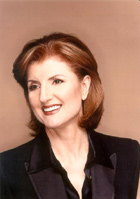Subscribe to Weekly Column | Email 







| ||||||||||||||||


In the aftermath of the Littleton massacre, President Clinton has already proposed new laws to restrict the marketing of guns to children, and on Monday (May 10) he will host a conference to examine the entertainment industry's marketing of violence to children. But no one is planning a conference or introducing laws to deal with a third problem -- the marketing of mood-altering prescription drugs to children.
Despite disturbing evidence of drug-induced manic reactions, the number of antidepressant prescriptions for children continues to soar, reaching 1,664,000 in 1998. And buried in the Littleton coverage was the announcement this week that traces of Luvox, a sibling of Prozac, were found in Eric Harris' bloodstream. The presence of Luvox, the coroner said, ``does not change the cause and manner of death.'' Yes, but did it change the cause and manner of Eric's life?
Luvox was approved by the FDA in 1997 for the treatment of obsessive-compulsive disorders (OCD) in children, but not for the treatment of depression. Indeed, no antidepressant -- Prozac, Zoloft, Paxil or Luvox -- has been approved for pediatric use. Solvay, Luvox' manufacturer, declares it ``safe and effective.'' Yet the Physicians' Desk Reference reports that during controlled clinical trials manic reactions developed in 4 percent of children on Luvox. Another clinical trial found that Prozac caused mania in 6 percent of the children studied.
Mania is defined as ``a form of psychosis characterized by exalted feelings, delusions of grandeur ... and overproduction of ideas.'' There were plenty of delusional statements on Harris' Web site. ``My belief,'' he wrote, ``is that if I say something, it goes. I am the law. If you don't like it, you die.'' This should have troubled any doctor who was following Harris after he was put on Luvox. Or was Harris one of the tens of thousands of children cavalierly put on antidepressants without either a proper psychiatric evaluation or ongoing monitoring of side effects?
The news that Harris had been on Luvox came on the heels of the revelation last summer that Kip Kinkel, the Oregon school shooter, had been on Prozac. These antidepressants clearly did not exorcise the teenagers' demons. The question we should be urgently asking is: did they embolden them?
At a congressional hearing on media violence this week, we were reminded that 95 percent of children are never involved in a violent crime. Most children whose parents own guns do not steal them; most children who watch ``Natural Born Killers'' do not go on shooting rampages; and most children on antidepressants do not kill their schoolmates. But while there is saturation coverage about the dangers of guns and media violence, there is no debate about the dangers of antidepressants on our most vulnerable children's growing brains.
Dr. Leon Eisenberg of the Harvard Medical School described the Prozac/Luvox family of antidepressants as ``potent medications that change nerve transmission.'' ``What happens,'' he asks, ``after two to three years of that?'' But even mildly skeptical voices from within the medical community are routinely ignored as if they were attacks on scientific progress itself.
We are in desperate need of more information -- not just more clinical studies but more data released to the public about the medical histories of children charged with acts of violence. For starters, in the same way that kids are examined for the presence of illegal drugs and alcohol in their bloodstream, they should be routinely examined for mood-altering legal drugs. ``I have testified as a medical expert,'' Dr. Peter Breggin, author of ``Talking Back to Prozac,'' told me, ``in three teenage cases of murder in which antidepressants were implicated in playing a role. In one case where a 16-year-old committed murder and tried to set off multiple bombs at the same time, the comparisons with Littleton are obvious and ominous.''
The response from drug manufacturers echoes that of gun manufacturers: ``Prozac and Luvox don't kill people, people kill people.'' And like gun manufacturers, drug manufacturers are facing growing legal challenges. Littleton was followed by other shootings and bomb threats that closed schools and evacuated students across the country. Were any of the adolescents involved on antidepressants, and was that information made available to the authorities? Did, for example, the probation officer who wrote a glowing report on Harris after his arrest for breaking into a van know if he had been diagnosed with OCD before he was put on Luvox? And wouldn't it have been useful for him then and for us now to know what he was obsessive and compulsive about?
Following the news about Harris being on Luvox, Rep. Dennis Kucinich (D-Ohio), who sits on the Government Oversight Committee, sent a letter to the FDA calling for ``comprehensive clinical trials by the pharmaceutical companies'' to establish ``the behavioral effects of antidepressants on our youth.'' How much Luvox and Prozac have to be found in the bloodstreams of our child-killers before the FDA takes action -- and the rest of us take notice?
Discuss this column and more in the Forum